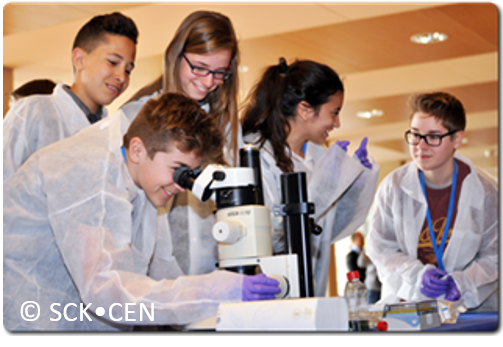Development of electrochemical steps for glucose electrooxidation to value-added products

Categorie
Doctoraatsverdediging
Datum
2024-04-22 17:00
Locatie
Universiteit Antwerpen, Campus Drie Eiken, Gebouw O, Auditorium O6 - Universiteitsplein 1, 2610 Antwerpen
Belgie
Belgie
Promovendus/a: Giulia Moggia
Promotor(en): prof. dr. Tom Breugelmans
Carbohydrates are renewable, inexpensive and available organic raw materials. Only 3–5% of them have industrial use, the rest decays and recycles along natural pathways. One interesting finding in this field has been the recognition that acids derived from sugars have potential uses in fine chemistry. The biggest challenge in the use of carbohydrates as raw materials in fine chemistry is to achieve their direct and region-selective oxidation in aqueous media, which is difficult by classical chemical methods without a preliminary protection strategy. Electroorganic approaches have currently fascinated academicians and industrial researchers because of their high potential prospects for industrial ventures. Electrocatalytic organic synthesis provides a powerful tool to control the reaction rate and selectivity through electrode potential and current, and represents a promising alternative to the traditional industrial methods. In fact, electrosynthesis is naturally suited to obey the principles of Green Chemistry, owning to several environmentally favorable features: i.e., reduced energy consumption, use of renewable raw materials, decreased emission of pollutants or toxic raw materials.Despite its sustainable nature and its potential to electrify the industry, as such replacing traditional, non-sustainable production processes of a broad range of fine chemicals, electrochemical synthesis methods are still very underdeveloped as compared to their traditional alternatives. More research is needed to better understand electrochemical processes and address the main challenges that prevent their application at industrial scale: i.e., the still unsatisfactory selectivity and/or productivity, the electrodes’ limited lifetime and the insufficient know-how on up-scaling towards industrial scale.
This PhD thesis is specifically dedicated to the study of electrocatalytic routes for the selective oxidation of glucose to gluconic and glucaric acid (both of which are commercially relevant carbohydrates). The aim here is thus to investigate the factors that determine the selectivity of the reaction towards the two products of interest, including the choice of the catalyst and the reaction conditions, and, as such, unravel the reaction mechanism beyond it. To this end, a combination of electrochemical and analytical techniques is used where microscopical surface analysis, used for the morphological characterization, is linked to its electrocatalytic performance.
Alle datums
- 2024-04-22 17:00
Powered by iCagenda






